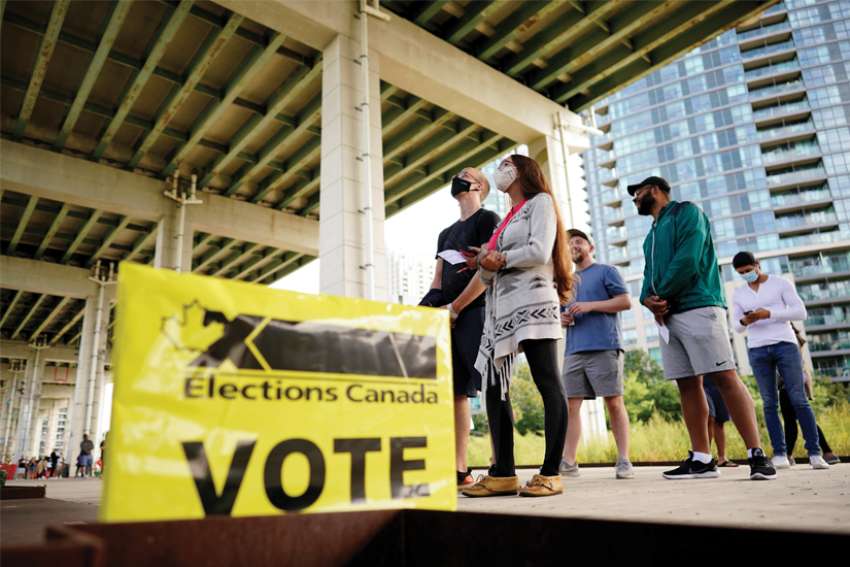The second-year social work student at Toronto’s Ryerson University said she was compelled by a sense of duty.
“As a first-time voter, it was very exciting as I believe that it’s important to vote because I believe that everyone’s voice should be heard in our democracy. We need to have a government that represents the needs of different ages, ethnicities and abilities,” she said.
Rogalski’s desire to partake in the political process would be a delight to John Milloy. The former Liberal MPP for Kitchener Centre (2003-14) and author of the new book Politics and Faith in a Polarized World: A Challenge for Catholics urges increased participation in the political process.
Milloy would like to remind us that, quoting Pope Francis: “Politics is in the highest form of charity. It allows us to live out the faith outside of the pews. It’s a calling as a Catholic to participate in politics.”
Michael Thompson is a former staff member of Catholic Conscience, a Canadian non-partisan organization for Catholic civic and political leadership and engagement. He agrees with the Pope.
“We should mix faith and politics because all elected officials have the responsibilities to represent others like them,” said Thompson. “More faith-based conversations will divide society and open up difficult conversations and further hone the beliefs of the broader society.”
In the days leading up to the Sept. 20 election, Milloy, in conversation with Catholic Conscience executive director Brendan Steven, discussed the state of Catholic engagement in the political process. He said it is too often narrowed down to just two topics: abortion and LGBTQ rights, and that is wrong.
“So many of the debates and discussions are going on here and instead it’s being turned on its head and being treated as a negative force in Canadian life which can be defined by two narrow issues that are against the values of society,” he said, adding fault can be levelled at both sides, journalists and politicians who persist on these two narrow issues and Catholics who take the bait.
Thompson would agree that Catholic relevancy is eroding.
“Without a focus on beliefs in the form of policy suggestions, being Catholic is a less relevant intersection than party affiliation, ethnic affiliation, etc.,” said Thompson. “I think that the justice in this lies in the way that the public has perceived the erosion of religious distinctions. By not advocating for the promotion of other beliefs, or social policies, Catholicism is now identified by the issues it most clearly stood by over the last several decades.”
Milloy sees a call for a new culture of engagement.
“If there is solidarity, then you don’t have the good guys versus the bad guys. With solidarity, there is no bad guy; it gets rid of the idea of the stranger. Gets rid of the notion of enemy and suddenly there is responsibility for each other. And that is powerful,” Milloy writes.
“Solidarity and my connection with the other, the other is made in the image of God. And even if I can’t stand that person, they are still one of God’s children and God loves them.”
Rogalski says her views align with Milloy. She issues a challenge to fellow young voters to not discount the power of your vote “if you really care about social issues.”
But she also is well aware that the real work is still to come as Parliament prepares to resume sitting in late November.
“I think that we as the lay people can serve our communities by doing exactly what Milloy said: taking our concerns to our MPPs and MPs,” she said. “I think that we should be persistent in our demands. This bit of extra effort can bring social issues onto the floor of the House of Commons and make a difference.”

